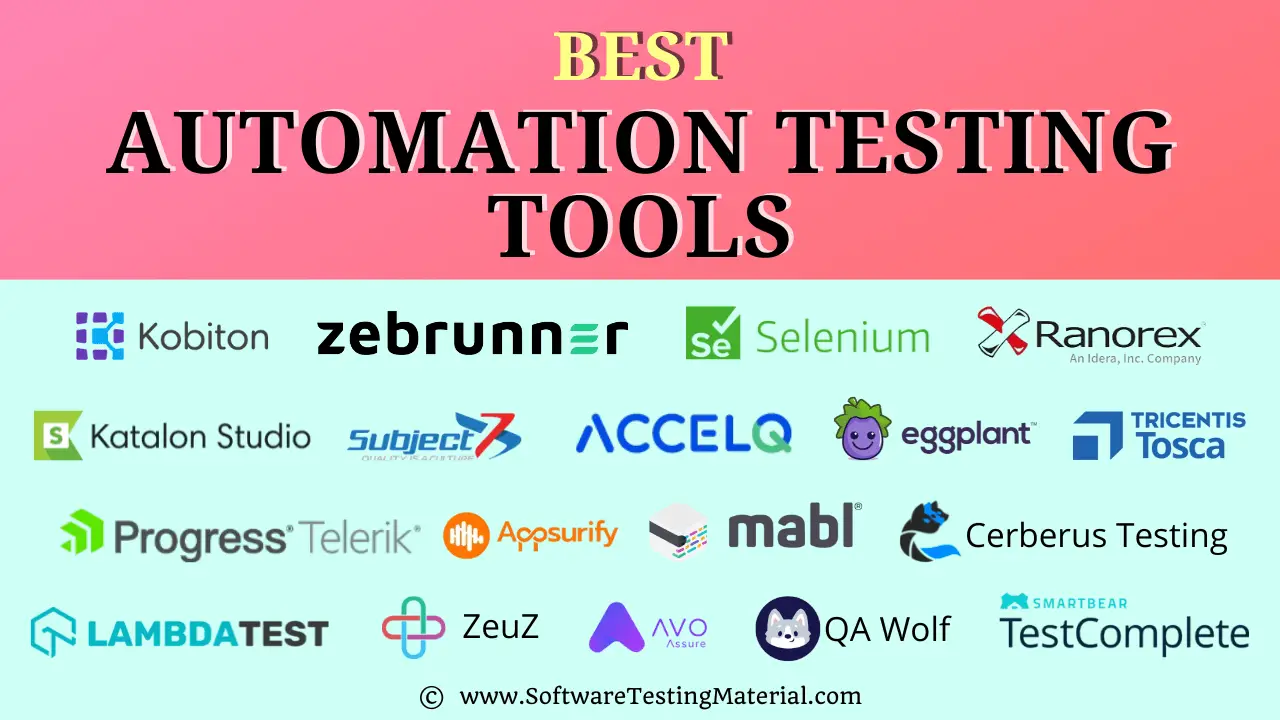
In today’s fast-paced software development landscape, the need for efficient and reliable testing processes is more critical than ever. With the evolution of Rapid Test Automation and Test Automation Tools, organizations are now able to streamline their testing efforts, enabling quicker feedback loops and improved overall product quality.
Rapid Test Automation allows teams to automate various aspects of their testing process, reducing manual efforts and accelerating the time it takes to run test cases. Test Automation Tools provide the necessary infrastructure to efficiently create, manage, and execute automated test scripts, helping teams achieve higher test coverage and minimize the risk of human error. Through the strategic implementation of these tools and practices, software development teams can revolutionize their testing approach, shifting focus from mundane, repetitive tasks to more strategic and value-added activities.
Benefits of Rapid Test Automation
Incorporating rapid test automation into software development processes can significantly enhance efficiency and reduce time-to-market. By automating repetitive testing tasks, teams can streamline their workflows, allowing for quicker identification and resolution of bugs and issues.
One of the key benefits of leveraging test automation tools is the ability to achieve greater test coverage. Automated tests can be executed more frequently and consistently compared to manual testing, ensuring that a wider range of scenarios are thoroughly examined to validate software quality.
Furthermore, rapid test automation tools empower teams to run tests in parallel across multiple devices and environments, accelerating the overall testing process. This concurrent testing capability not only expedites feedback loops but also enhances the overall reliability and robustness of the software being developed.
Top Test Automation Tools
In the world of rapid test automation, there are several powerful tools that have gained popularity for their efficiency and effectiveness. One such tool is Selenium, a widely-used open-source framework that enables automated testing across different web browsers and platforms. Its robust features, such as easy integration with various programming languages and support for parallel test execution, make it a top choice for many automation testers.
Another notable test automation tool is Katalon Studio, a comprehensive solution that combines multiple functionalities to streamline the automation testing process. With its user-friendly interface and drag-and-drop capabilities, Katalon Studio allows testers to create automated test scripts without the need for extensive coding knowledge. Its extensive library of pre-built keywords further enhances productivity and reduces testing time.
For those looking for a tool with strong cross-platform testing capabilities, Appium is a preferred choice. This open-source tool specializes in mobile app automation and supports both native and hybrid applications across iOS and Android devices. Testers appreciate Appium for its ability to interact with mobile elements directly, providing a seamless automation experience for mobile testing projects.
Best Practices for Implementing Rapid Test Automation
Book Now
When implementing rapid test automation, it is crucial to start by clearly defining your automation goals and objectives. This initial step sets the foundation for a successful automation strategy and helps in identifying the key areas where automation will bring the most value.
Next, it is important to prioritize test cases based on their impact on the software application. By focusing on high-risk and high-impact test cases first, you can ensure that the automation effort is targeted towards the most critical areas of your application, ultimately leading to more effective testing outcomes.
Lastly, continuous monitoring and maintenance of automated test scripts are essential for long-term success. Regularly reviewing and updating test scripts to reflect changes in the application will help in keeping the automation suite relevant and reliable, ensuring maximum efficiency and effectiveness in the testing process.


